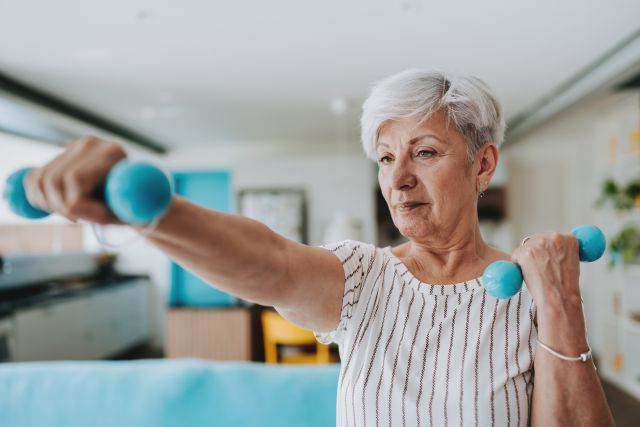Updated on October 31, 2023.
The risk of falls goes up dramatically when you have weak bones and muscles. That's bad news, particularly for people with osteoporosis, because a fall can easily lead to a bad break.
The good news is that you can take steps to strengthen your bones and muscles. Here's how to get started.
Bone up your activity
One of the best ways to lower your risk of falls and fractures is to stay physically active. An physical activity program includes several key features:
- Building stamina and conditioning, from cardiovascular exercise like walking, jogging, or bicycling
- Building strength, from weight-bearing resistance exercise like lifting weights, doing body weight moves like pushups and planks, or using resistance bands
- Building balance and flexibility, with moves like tai chi or gentle yoga
Exercise routines that combine these elements work best to reduce the risk of falls and bone breaks. If you have osteoporosis, check with your healthcare provider first before beginning any exercise program. They will want to design a physical activity program that's gentle on bones.
Move safely
When you have osteoporosis, moving in certain ways may be unsafe and increase your risk of falls. Every individual's case is unique, but, in general, having good posture and moving your body properly can help prevent falls and broken bones.
For example, when walking, keep your feet and knees pointed straight ahead, keep your head high and shoulders back, and wear shoes with nonslip soles. Pay special attention to uneven pavement and curb heights.
It's also crucial to stay up to date on your eye appointments so you can correct your vision as needed. Seeing obstacles is the first step in avoiding them.
When you can, take advantage of assistive devices, such as handrails on stairs. And ask your HCP if they think a cane or walker would promote better balance.
And work around the house as much as possible to reduce tripping hazards, such as by stowing away power cords or reducing the use of area rugs.
Check in with your provider
A conversation with your HCP might help reveal other risk factors for falling. Low blood pressure, heart problems, cognitive impairment, and vision trouble all increase the risk of falls, so it's best to have them diagnosed and treated.
Certain medications, such as antiseizure drugs, narcotic painkillers, and antipsychotic medications may up the risk of falls, too. Your HCP may need to adjust your medication plan to help keep you safe.
Control is in your hands
Living with the fear of falling can be unsettling. But you'll feel better and more empowered if you take active steps to reduce the risk of falls. If your balance or gait is off, your HCP may even recommend physical therapy or balance training. Be sure to work closely with your HCP to take advantage of all the tools available for making your body stronger and your environment safer.






